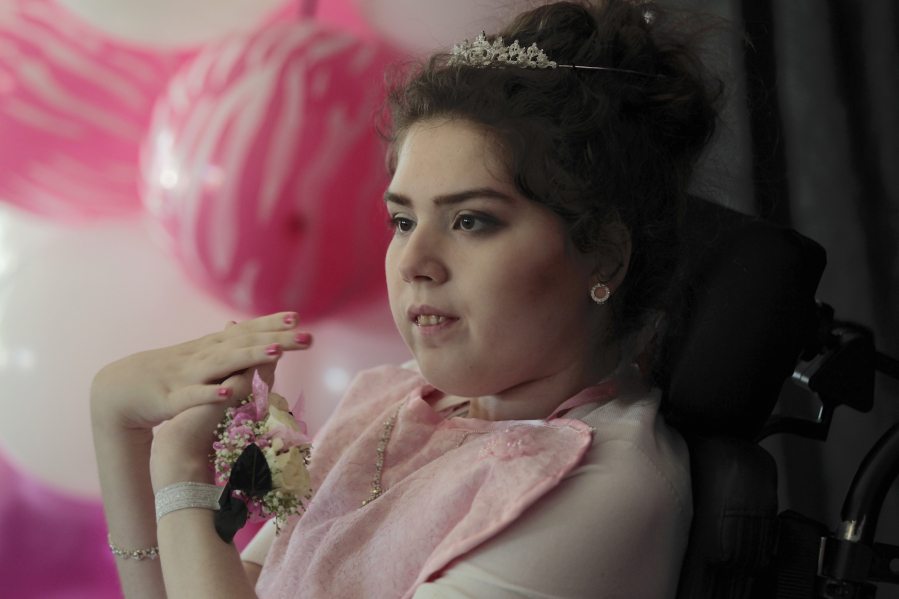About 30 minutes into Seaira Hiebert’s 18th birthday party, while posing for portraits in her wheelchair, she had a couple of seizures. Her loved ones crowded around her under the balloon arch to make sure she was OK.
Seizures are a regular occurrence for Seaira, who has Rett syndrome, a debilitating neurological disorder that effects 1 of every 10,000 to 15,000 girls born in the U.S. Family friend Sherri Miller knows that just before a seizure Seaira’s body tenses and her eyes roll back. Swiping a magnet across a Vagus Nerve Stimulator implanted in Seaira’s chest stops or minimizes the seizure’s severity.
“For her to have lasted this long, she did really good,” Miller said, watching as Seaira was carried to a couch.
The onslaught of people and attention at Seaira’s prom-themed birthday party was overstimulating. Dozens of people came to an event-planning studio, We Plan It, by the Vancouver waterfront on Saturday to celebrate.





